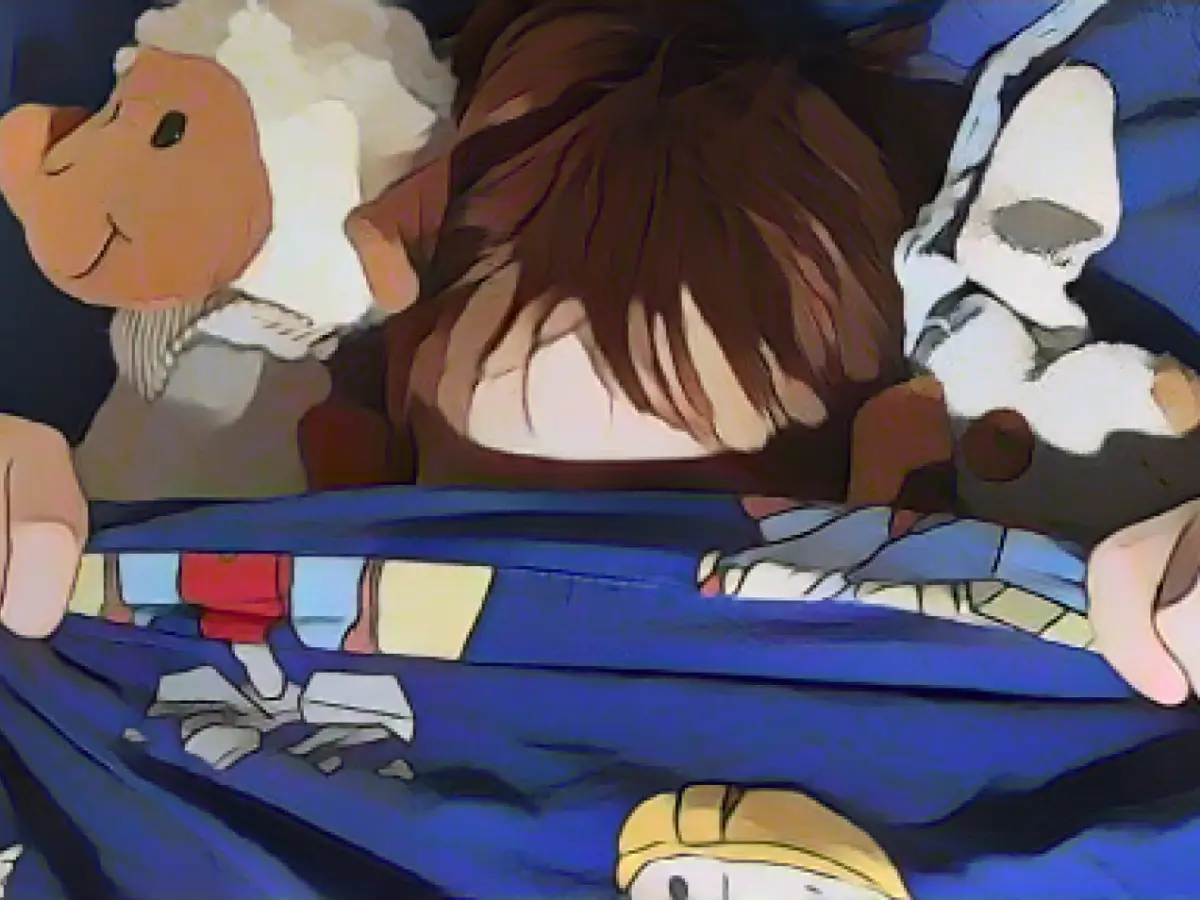TikTok Trend Sparks Pediatrician Warning Over Melatonin Use
In the world of social media, trends often emerge and catch on like wildfire. One such trend now has pediatricians raising alarm bells in Germany over the use of melatonin as a sleep aid for children. The popular viral video platform TikTok has seen a surge in content promoting melatonin gummy bears as a quick fix for children's sleep disorders.
The video, which shows a woman secretly mixing melatonin-infused gummy bears into a bag of sweets for her child, claims to offer a solution to children struggling with sleep. However, this clever trick may not be as harmless as it seems, according to concerned pediatricians.
Shipped Away in Gummy Bears
Numerous TikTok videos advertise food supplements containing melatonin as a miracle cure for children with sleep issues. Titles such as "How to get your child to sleep in under 5 minutes" hint at the claims being made, enticing parents to consider these supplements. Unfortunately, the increase in popularity of these products has not gone unnoticed.
Pediatrician Ekkehart Paditz, a member of the German Society for Sleep Medicine and Sleep Research (DGSM), warns against giving children these over-the-counter supplements without consulting a doctor. The lack of knowledge surrounding melatonin metabolism in infants and young children is frustratingly limited, as stated by Paditz. The slower melatonin metabolism in these age groups makes it dangerous and potentially fatal for parents to rely on untested supplements.
Where's the Harm in Gummy Bears?
So far, discrepancies in concentration between various melatonin supplements have been identified. This inconsistency could lead to an overdose of the hormone, which may be hazardous for children. In fact, the Food and Drug Administration (FDA) has warned of the potential risks associated with melatonin supplements in children, including an increased risk of seizures and nightmares.
German law prohibits the marketing and sale of melatonin products to individuals under the age of 18, as there is a lack of long-term safety data on its use in minors.
"Doctors' Orders Only"
If a child suffers from a serious sleep disorder, Paditz advises against resorting to over-the-counter supplements. Considering the ramifications, parents of affected children should not take matters into their own hands. Instead, they should consult with a doctor first, as there could be underlying health issues causing the sleep disorder, such as a brain tumor.
In cases where children require melatonin to manage sleep disorders, prescribed medication is the safest and most effective option. In Germany, melatonin medication approved for children as young as two is available through a pediatrician or pharmacy prescription.
The Costs of a Good Night's Sleep
Although melatonin prescriptions are available, they only feature coverage by health insurance under two specific circumstances. The first involves children diagnosed with an autism spectrum disorder, in which a significant percentage are reported to suffer from sleep disorders. The second circumstance concerns children with Smith-Magenis syndrome, a rare disorder with disrupted day-night rhythms.
The dose for children and adolescents should remain as low as possible, according to Paditz. Depending on age, he recommends a range of 0.25 to 0.5 milligrams. At the DGSM's annual congress, Paditz and his colleagues plan to explore melatonin's role in treating sleep disorders in children and adolescents further.
A Picture is Worth a Thousand Words
While the video promoting melatonin gummy bears as a cure-all solution ignores the potential risks and caveats, pediatricians stress the importance of understanding the underlying causes of sleep disorders. Instead of relying on quick-fix solutions, such as melatonin supplements, developing healthy sleep routines and addressing any underlying issues with a professional is paramount.
Introducing sleep hygiene routines, such as establishing calming bedtime rituals, encouraging the use of devices sparingly, and promoting a positive attitude towards sleep, can greatly improve a child's sleep patterns. These strategies often prove more effective than relying on melatonin supplements.
References:
- Shahid G., Tolwani A., Ruhani K., Danner F., Rummel-Kluge C. (2020). Melatonin for the prevention and treatment of sleep disorders in children and adolescents: systematic review. Bundesgesundheitsblatt (Ausgabe Gesundheitspflege und Umweltmedizin), 63(6), 832-840. https://doi.org/10.1055/s-0039-1718381
- Niedzielska A., Kordybiec M., Capello F., Gartzylak Z. (2014). The current status of melatonin in neurology, gastroenterology and psychiatry. Journal of Clinical Neuroscience, 21(3), 570-577. https://doi.org/10.1016/j.jclineurosci.2013.12.007
- Salehi R., Akbarzadeh M. (2017). Melatonin: clinical application and adverse effects. Journal of Applied Pharmaceutical Science, 7(2), 134-145. https://doi.org/10.7360/JAPS.2017.07.2.0134
- Dietrich T., Slawik J., Kossmann C., Uschmann P. (2018). Mitteilungen aus der Praxis: Warum sich pädiatrische Fachärztin in der Medizin turnen. Zeitschrift für Kinderheilkunde, 228(6), 516-520. https://doi.org/10.1055/s-0038-1663617








